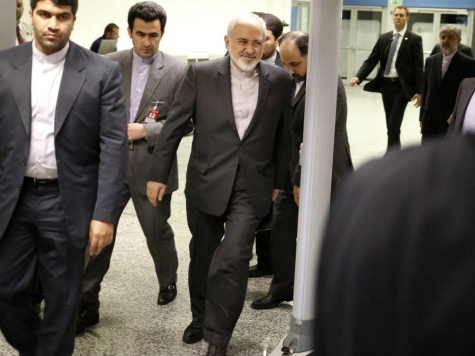
With the controversial, six-month “interim” nuclear deal between Iran and the group of Western powers known as the P5+1 formally expiring a week from Sunday, western diplomats, including US Secretary of State John Kerry, are gathering in Vienna for what they call a final push to reach a lasting agreement that they promise would prevent Iran from obtaining nuclear weapons capability.
On one issue, both Iran and the West appear in complete agreement: they are nowhere near a final agreement. “We have some very significant gaps,” said US Secretary of State John Kerry upon his arrival in Vienna. To say the least.
For his part, Iran’s top nuclear negotiator Abbas Araqchi was less circumspect. He was quoted telling Al-Alam TV that the likelihood of a permanent deal being reached by next week is practically zero. “On practically all the important issues major differences persist, and we have not been able to narrow them.” Iran claims now, as it has always claimed, it will never negotiate away its “right” to enrich uranium as part of its national nuclear program.
As the prospects of reaching agreement on a permanent deal by the deadline established last November fade, the question is quickly becoming, “What next?” If the agreement does expire, Iran could find itself again subject to a strict sanctions regime that was significantly relaxed as part of the interim deal.
However, since so much political capital has already been invested – especially by the Obama administration – in negotiating with Iran, most analysts regard it as highly unlikely that President Obama would ever permit Secretary Kerry to leave Vienna without some kind of extension that keeps the current deal alive, if only to buy more time. One can already hear the arguments for such an extension being been road tested by administration surrogates and even Secretary Kerry himself now.
“We have made such good progress,” they may well argue, “What a shame it would be to let an arbitrary deadline get in the way of finding common ground.”
With Israeli Prime Minister Benjamin Netanyahu repeatedly warning that Israel would not tolerate any nuclear deal with Iran that leaves the Mullahs with the capability to domestically enrich uranium – the fuel for nuclear weapons – the pressure on President Obama to keep the “process” alive appears immense. So long as a negotiating process is in place, the likelihood of an Israeli strike against Iranian nuclear facilities, if not the regime itself, appears unlikely.
The original deal reached last November was initially met with great consternation, not just by Israel and other US allies like Canada and Australia. It was also bitterly opposed by France, which threatened to bolt the talks in order to scuttle a deal President Hollande thought legitimized Iran’s right to develop nuclear weapons.
The great concern was then what it remains now: that the Interim Agreement provided Iran with instant relief from crushing economic sanctions by allowing it to immediately access up to $7 billion in frozen assets, without requiring Iran to do dismantle so much as a single one of its estimated 19,000 centrifuges.
If the current deal is extended it will only increase suspicions by Israel and other western partners that the US remains unserious about preventing Iran from obtaining nuclear weapons capability and assurances that would all but be certain to come from Secretary Kerry justifying the extension will likely fall on deaf ears.
One week before the current framework was signed last November, Secretary Kerry assured skeptics that the US would never support or acknowledge any deal that granted Iran the right to domestically enrich uranium. “That certainly will not be resolved in any first step, I can assure you,” he said.
Yet just days later, Kerry signed a deal that granted Iran precisely that right. Today, six months later, the parties gathering in Vienna are openly promoting what they call a “comprehensive solution” that would permit Iran to maintain a domestic uranium enrichment program. Despite repeated binding UN resolutions demanding that Iran halt enrichment, the P5+1 has already agreed to let it continue enriching in perpetuity. This would be like Israel signing a deal to resettle five million Palestinian “refugees” in its territory and then claiming it didn’t agree to a “right of return” because those three words don’t appear in the text. And if America’s top diplomat can flat-out lie about the deal’s content even after the text has been published for all to see, why would anyone ever trust America’s word again?
But as Walter Russell Mead observed on the eve of the Interim, “America’s problems with Iran are not limited to its quest for nuclear weapons.”
Indeed they aren’t. Even without nuclear weapons, Iran has clearly emerged as the greatest national security threat not just to Israel and the United States but to key regional US allies like Saudi Arabia, the Gulf states, and Egypt. Iran is on the cusp of realizing nearly all its regional goals without a nuclear weapons capability. In the past six months alone, Iran has made significant strides in Syria, Lebanon, and the Shi’a portions of Iraq.
Progress in that was made much easier by President Obama’s steadfast refusal to connect any element of Iran’s nefarious behavior to the nuclear talks. At no point has Iran’s increased sponsorship of global terrorism, its advanced ballistic missile program, and its atrocious human rights record even been discussed during the nuclear negotiations.

COMMENTS
Please let us know if you're having issues with commenting.